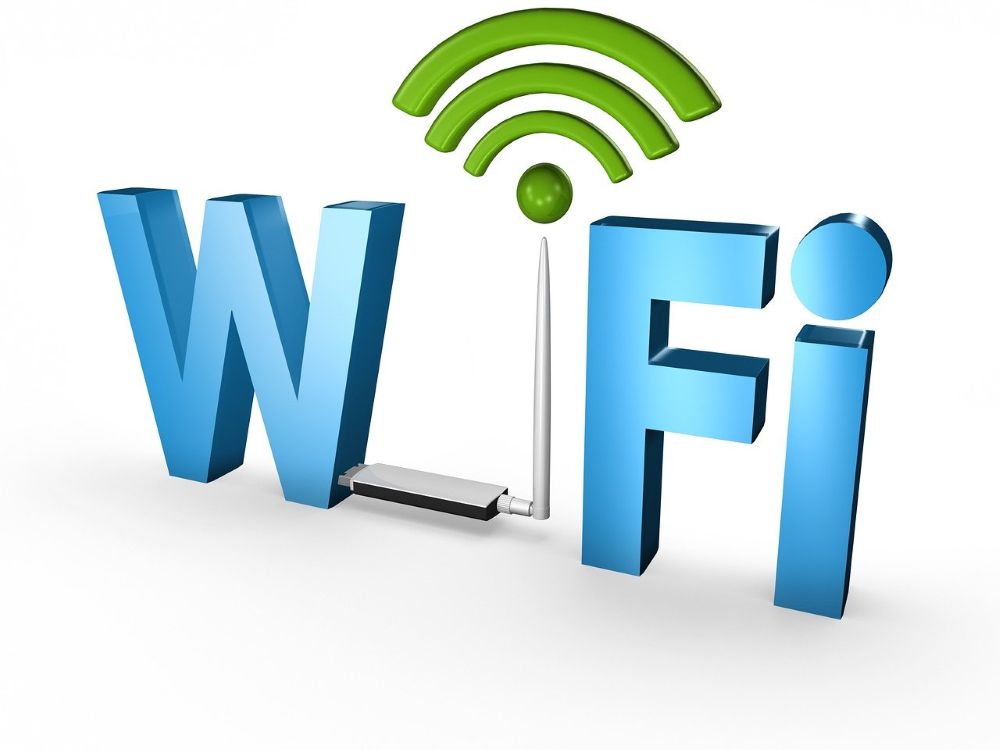Wi-Fi 7 vs. Wi-Fi 6: A quantum leap for your home network?
The new Wi-Fi 7 standard, also known as IEEE 802.11be, promises a revolution in wireless connectivity. With significantly higher speeds, lower latency, and overall more robust performance, it aims to surpass its predecessor, Wi-Fi 6. But what do these technological advancements actually mean for the end user?
Is it worth upgrading to a new router right now, and what options are available to users whose routers are provided by their internet service provider? This article provides a detailed analysis.

Wi-Fi 6: The established standard
Wi-Fi 6 (IEEE 802.11ax) has already significantly improved the WLAN experience in recent years. The most important features are:
- Increased efficiency in congested networks: Thanks to technologies like OFDMA (Orthogonal Frequency-Division Multiple Access) and MU-MIMO (Multi-User, Multiple Input, Multiple Output), Wi-Fi 6 can distribute data to multiple devices simultaneously and more efficiently.
- Increased speeds: Theoretical maximum speeds of up to 9.6 Gbps are possible, resulting in noticeably faster data throughput in practice.
- Improved battery life for end devices: With “Target Wake Time” (TWT), devices can better plan their Wi-Fi activity and thus save energy.
- Increased security: The introduction of the WPA3 encryption protocol offers better protection against unauthorized access.
- Utilization of the 6 GHz band (with Wi-Fi 6E):An extension of the standard that provides additional, less congested frequency channels.
Wi-Fi 7: The next stage of evolution
Wi-Fi 7 builds on the strengths of Wi-Fi 6 and introduces a number of groundbreaking innovations that redefine the performance limits of wireless internet:
- Extremely high speeds: Wi-Fi 7 enables theoretical data rates of up to 46 Gbps, making it almost five times faster than Wi-Fi 6. In practice, this means a massive leap in transmission speed.
- Double the channel bandwidth: The maximum channel width is doubled from 160 MHz in Wi-Fi 6 to 320 MHz. This enables the transmission of significantly more data at the same time.
- 4K-QAM Modulation: A more advanced modulation technique (4096-QAM compared to 1024-QAM in Wi-Fi 6) provides 20% higher data density in the transmitted signals.
- Multi-Link Operation (MLO): This is one of the key features of Wi-Fi 7. MLO allows devices to simultaneously send and receive data over multiple frequency bands (2.4 GHz, 5 GHz, and 6 GHz). The result is a more stable, faster, and more reliable connection with significantly lower latency.
- Improved Efficiency and Capacity: Wi-Fi 7 further optimizes the use of the radio spectrum and can support an even greater number of devices simultaneously without any loss of performance.
Der direkte Vergleich: Wi-Fi 7 vs. Wi-Fi 6
| Feature | Wi-Fi 6 (802.11ax) | Wi-Fi 7 (802.11be) |
|---|---|---|
| Maximum theoretical speed | 9,6 Gbit/s | 46 Gbit/s |
| Frequency bands | 2,4 GHz, 5 GHz, 6 GHz (mit 6E) | 2,4 GHz, 5 GHz, 6 GHz |
| Max. channel width | 160 MHz | 320 MHz |
| modulation | 1024-QAM | 4096-QAM |
| MU-MIMO | Up to 8×8 | Up to 16×16 |
| Key technology | OFDMA, MU-MIMO | Multi-Link Operation (MLO), OFDMA |
| Security | WPA3 | WPA3 (improved) |
Who would benefit from switching to a Wi-Fi 7 router?
Despite the impressive technical specifications, an immediate switch to Wi-Fi 7 is not absolutely necessary for everyone. The decision depends heavily on individual usage profiles:
Switching is particularly beneficial for:
- Users with ultra-fast internet connections: Those with a fiber optic connection of 1 Gbps or more can fully utilize their connection’s potential with Wi-Fi 7, even over Wi-Fi.
- Demanding users and “power users”: Individuals who regularly download or upload large amounts of data, stream high-resolution content (4K/8K), use virtual and augmented reality applications, or engage in professional cloud gaming will benefit significantly from the higher speeds and lower latency.
- Households with a large number of connected devices: In smart homes with numerous IoT devices, multiple users streaming simultaneously, and data-intensive applications, Wi-Fi 7 ensures a more stable and powerful network.
- Businesses and offices: In In environments with high device density, such as open-plan offices or event venues, Wi-Fi 7 can significantly improve network performance and reliability.
For most average users who browse the internet, check emails, and occasionally stream in HD, a Wi-Fi 6 router is still perfectly adequate.
What to do if you have a router provided by your internet service provider?
Many internet users receive their router directly from their internet service provider. These devices typically don’t support the latest Wi-Fi standards. If you still want to benefit from Wi-Fi 7, you have several options:
Ask your provider about an upgrade: Some providers now offer more powerful router models as an option, which may already support Wi-Fi 7. It’s worth contacting customer service.
Buy and connect your own Wi-Fi 7 router: In most cases, it’s possible to use your own router behind the provider’s router. The provider’s router is often put into “bridge mode,” so it only functions as a modem. The new Wi-Fi 7 router then manages the home network. Before buying, check compatibility and the necessary configuration steps.
Buy and connect your own Wi-Fi 7 router: Using Wi-Fi 7 as an Access Point: Another option is to connect a Wi-Fi 7-enabled router or a dedicated access point to the provider’s router via LAN cable. This then establishes a separate, high-performance Wi-Fi 7 network, while the provider’s router continues to provide the internet connection.
Availability and costs
Wi-Fi 7 routers are already available from various manufacturers such as AVM (FRITZ!Box), Netgear, and TP-Link. Prices are currently still in the upper segment and are generally significantly higher than those of Wi-Fi 6 models. However, it can be assumed that prices will decrease with increasing market penetration and competition.
Conclusion: The future is fast, but it comes at a price
Wi-Fi 7 is undoubtedly a milestone in the development of wireless networking technology. The significant improvements in speed, latency, and stability open up new possibilities for demanding applications and future-proof home networks.
For the average user, an upgrade is not yet absolutely necessary, as Wi-Fi 6 offers solid performance that is more than sufficient for most everyday tasks. However, for those who want to get the most out of their high-speed internet connection, operate a state-of-the-art smart home, or rely on latency-sensitive applications, Wi-Fi 7 represents a worthwhile investment in the future. Even users with ISP-provided routers don’t have to miss out on the new technology and can benefit from its advantages by purchasing their own device.
Beliebte Beiträge
Warum dein Excel-Kurs Zeitverschwendung ist – was du wirklich lernen solltest!
Hand aufs Herz: Wann hast du zuletzt eine komplexe Excel-Formel ohne Googeln getippt? Eben. KI schreibt heute den Code für dich. Erfahre, warum klassische Excel-Trainings veraltet sind und welche 3 modernen Skills deinen Marktwert im Büro jetzt massiv steigern.
Microsoft Loop in Teams: The revolution of your notes?
What exactly are these Loop components in Microsoft Teams? We'll show you how these "living mini-documents" can accelerate your teamwork. From dynamic agendas to shared, real-time checklists – discover practical use cases for your everyday work.
Career booster 2026: These Microsoft Office skills will take you further!
A new year, new career opportunities! But which Office skills will really be in demand in 2026? "Skilled use" is no longer enough. We'll show you today's must-haves – like advanced Excel, using AI in the office, and relevant certifications for your resume.
Excel Tutorial: How to quickly and safely remove duplicates
Duplicate entries in your Excel lists? This distorts your data. Our tutorial shows you, using a practical example, how to clean up your data in seconds with the "Remove Duplicates" function – whether you want to delete identical rows or just values in a column.
Dynamic ranges in Excel: OFFSET function
The OFFSET function in Excel creates a flexible reference. Instead of fixing =SUM(B5:B7), the function finds the range itself, e.g., for the "last 3 months". Ideal for dynamic charts or dashboards that grow automatically.
Mastering the INDIRECT function in Excel
The INDIRECT function in Excel converts text into a real reference. Instead of manually typing =January!E10, use =INDIRECT(A2 & "!E10"), where A2 contains 'January'. This allows you to easily create dynamic summaries for multiple worksheets.

































